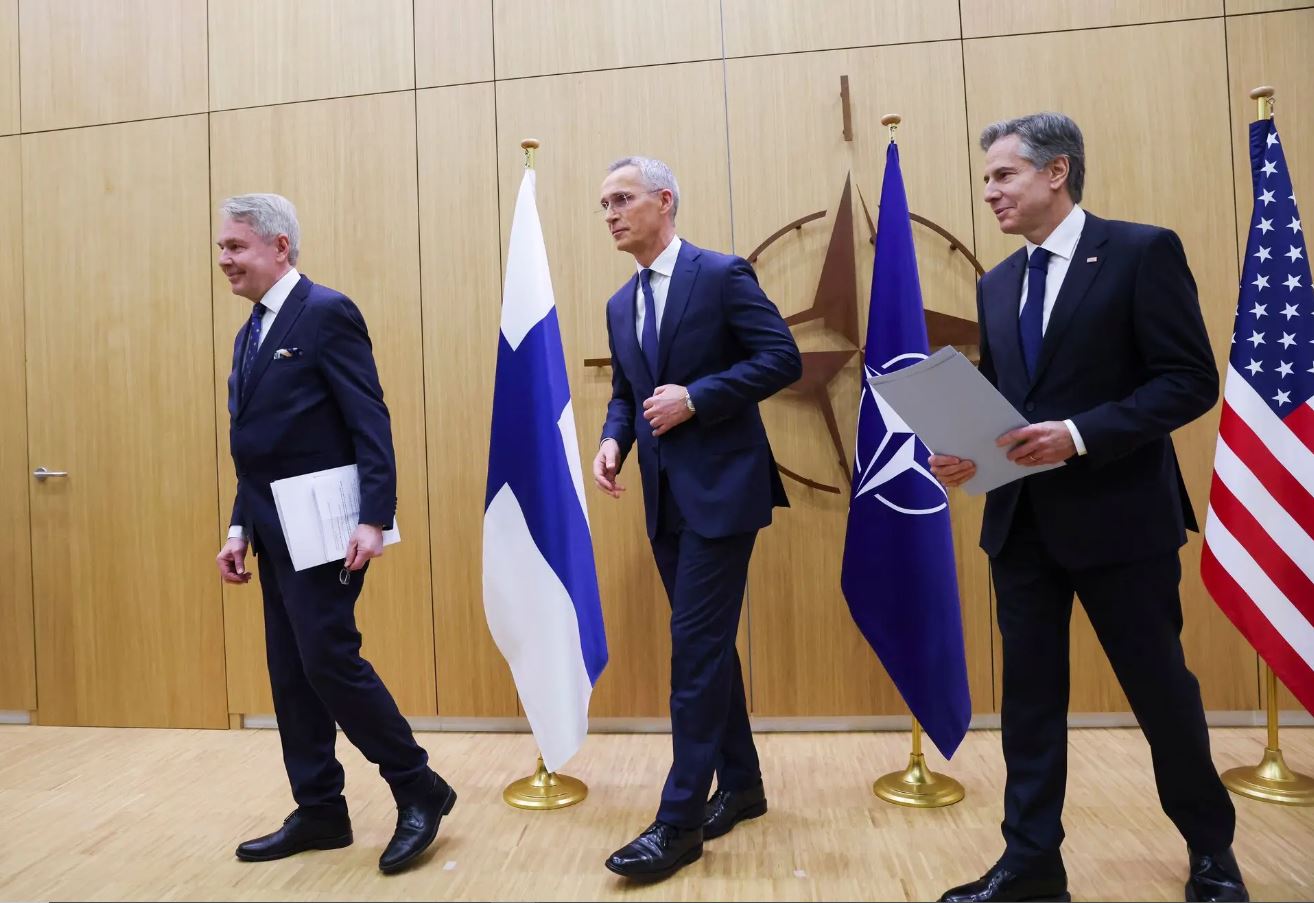Finland became NATO’s 31st member state with the simple exchange of documents, dealing a strategic defeat to Russian President Vladimir V. Putin who was determined to block the alliance’s expansion but instead galvanised Finland to join in the midst of Moscow’s devastating war in Ukraine.
With Russia’s hostility against its neighbour, Finland’s flag was flown at NATO headquarters later that day in a very significant event and a clear statement of the altering global dynamics. With Finland’s membership confirmed, NATO gained access to a powerful military with a long history of opposing Russia and quadrupled its boundaries with Moscow.
Having been attacked twice by Russia in the 20th century, and sharing an 830-mile border with it, NATO’s commitment to collective defence will now extend to this nation. The alliance gives the people of Finland a feeling of safety, both psychologically and practically, since they know Finland can rely on them for help if it’s attacked.
Attendee and Finnish President Sauli Niinisto said, “It is a fantastic day for Finland” on the occasion of NATO’s 74th anniversary.
Russia “wanted to establish a sphere around them,” he said, limiting Finns’ freedom of choice. We’re not round, you know.
There is still a lot to figure out before Finland can fully join the alliance. A new Finnish administration, yet to be established following Sunday’s election, must determine, among other important concerns, whether or not to allow foreign soldiers on Finnish land or even nuclear weapons belonging to friends.
U.S. officials note that Finland’s participation brings to the alliance not just one of Western Europe’s most powerful military, but also intelligence and border-surveillance capabilities. According to a recent study, Finland’s artillery forces have 1,500 pieces of equipment, making them the biggest and best-equipped in Europe among NATO countries. This includes 700 howitzers, 700 heavy mortars, and 100 rocket launcher systems.
Finland and Sweden, fearing Moscow’s wrath, maintained their policy of nonalignment in the armed forces long after the fall of the Soviet Union. The invasion of neighbouring Ukraine by Russian military prompted them to apply to join NATO last year. Russia has responded by vowing to increase its military presence along its extensive border with Finland.
On Tuesday, Kremlin spokesperson Dmitry S. Peskov said that Finland’s decision to join NATO constitutes a “attack” on Russia’s security and national interests. We need to respond with both tactical and strategic measures, he added.
Turkey, the only holdout among the alliance’s 30 member nations, accepted the application in a legislative vote last week, clearing the way for Finland’s entrance. Finland’s plans to join “hand in hand” with Sweden were derailed when they were met with opposition from Turkey and Hungary.
Recep Tayyip Erdogan, the president of Turkey and a candidate for re-election on May 14, expressed strong doubts about Sweden’s dedication to countering terrorism. Mr. Erdogan has demanded that Sweden extradite those he considers to be terrorists, including Kurds and others he says backed the 2016 coup attempt against him.
Finland’s accession paperwork had to be sent to the U.S. State Department in the person of Secretary of State Antony J. Blinken, who was in Brussels for a meeting.
The ostensibly banal procedures were weighted with importance, as when the delegates from Turkey and Finland handed over their official texts to Mr. Blinken, thereby sealing Finland’s accession.
The foreign ministers also discussed how to hasten Ukraine’s modernization of its armed forces to be compliant with NATO standards. Dmytro I. Kuleba, foreign minister of Ukraine, and Tobias L. Billstrom, foreign minister of Sweden, were both present.
Security specialist at the Finnish Institute of International Affairs Matti Pesu said that Finland has to develop the ability to think collaboratively and adjust its military policy accordingly. As it will be protected by the American nuclear umbrella, it must also consider its nuclear policy and its stance on nuclear weapons control.
Defense ties would be strengthened with nations such as the United Kingdom, Estonia, Norway, Sweden, and the United States, he added. In addition, “its Russia strategy will increasingly become deterrence-based” inside the collective alliance, rather than relying on independent might.
